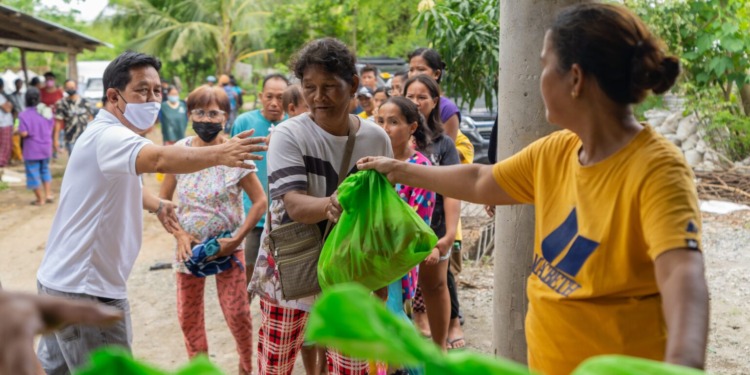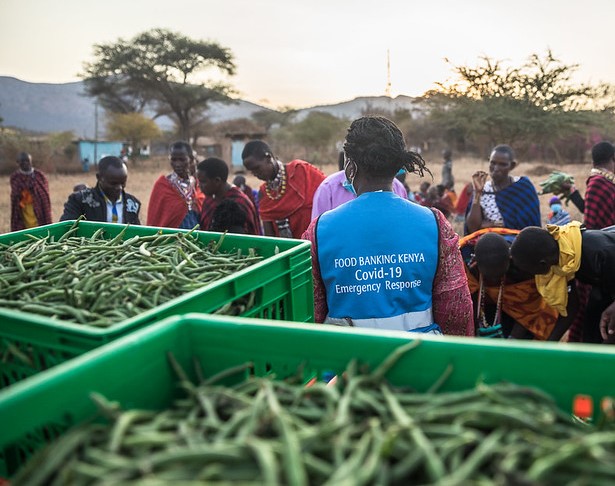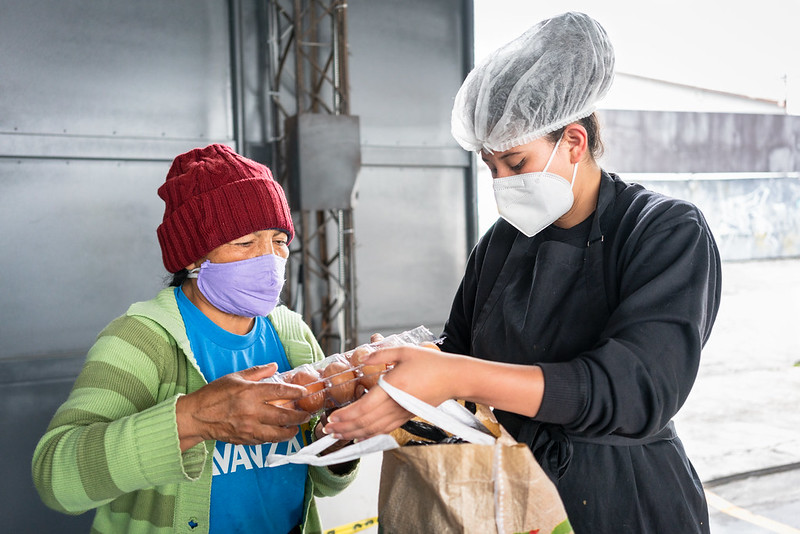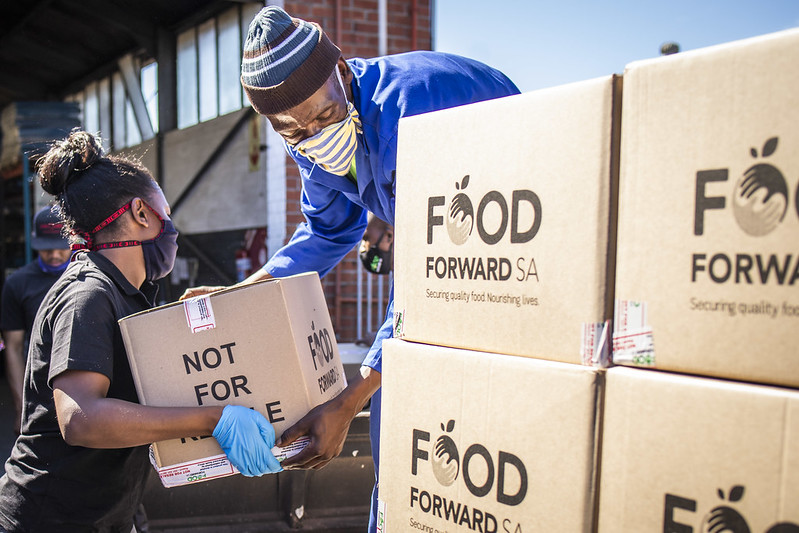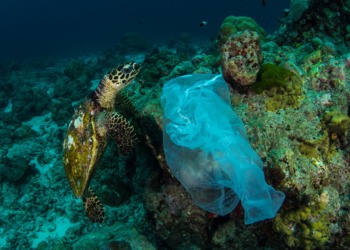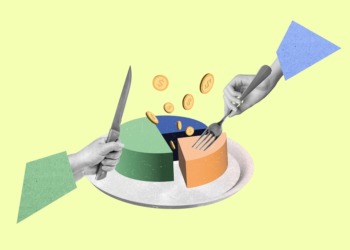The role food banks play in reducing food waste around the world is well understood: big warehouses stocked with safe, surplus food kept in pristine conditions, boxes of food being distributed by volunteers, or even emergency parcels reaching disaster-hit areas.
However, fewer seem to understand the connection this work has with building sustainable food systems and, in particular, tackling climate change as well. In fact, food banks are one of the unsung heroes of climate action and could play an even greater role in the future if supported to do so.
Climate change and the world’s food systems are inextricably linked. The Intergovernmental Panel on Climate Change (IPCC) 2022 report notes in particular that “the [world’s] food systems are both exposed to and contribute to climate change.” The newest IPCC Synthesis Report states that reducing food loss and waste is a cost-effective and viable strategy to reduce global emissions.
Food banks are a win-win solution for people and the planet and can help to mitigate the impacts of climate change.
Globally, more food is wasted or lost than ever before, accounting for 8 to 10 percent of greenhouse gas (GHG) emissions. If food waste were a country, it would be the third-largest GHG emitter globally. Earth Day is a time to take stock of how food banks are helping to mitigate climate change through the distribution of surplus food.
In 2021, The Global FoodBanking Network’s (GFN) member food banks recovered more than 500,000 metric tons of surplus food, preventing 1.7 million tons of carbon emissions. This is an environmental impact equal to reducing emissions from more than 365,000 passenger vehicles.
As food waste ends up in landfills, it gradually decomposes and releases methane, an extremely powerful GHG that is responsible for 30 percent of global warming since pre-industrial times. Food waste alone contributes 20 percent of global methane emissions today.
RELATED ARTICLES: Working Hand in Hand to Build Sustainable Agrifood Systems in the Pacific |Strengthening Urban Food Systems in Times of Crisis | Food Waste, Food Loss, and Hungry Americans | How Local Governments Can Put Food on the Table: An Interview with Peter Defranceschi | This Ancient Grain Could Help End World Hunger |
In addition, around 1.4 billion hectares of land – 28 percent of the world’s agricultural area – is used annually to produce food that is lost or wasted. Food banks make food systems more sustainable by feeding people without needing to increase food production or further straining the environment. Doing so helps to avoid more natural habitats like forests from being converted for agriculture, which are important carbon sinks that are lost if cut down for farming, releasing more GHGs and contributing to climate change.
Food banks also play a key role in climate adaptation, helping feed people who have been made vulnerable to food insecurity from climate-related impacts such as increasing temperatures, changing rainfall patterns, and greater frequency of extreme weather events.
The Maasai people of Kenya’s Great Rift Valley, for example, have found relief in an unexpected source. Traditionally nomadic and pastoralists, climate stress and persistent drought are threatening their livestock herds, upon which they rely for food. With the support of local guides, Food Banking Kenya is distributing surplus maize, rice, as well as fresh fruit and vegetables from nearby farms – of which around 40 percent of their production ends up wasted.
However, the current drought across the Horn of Africa, which is set to become the region’s worst on record, is leading to crop failure and is making even these farmers in need of food support.
Unlike many other climate solutions – such as reducing the use of fertilizer or localizing value chains – which are often complex, untested, or have trade-offs, food banks are an easy win-win for the climate and for food security.
However, for food banks to reach their full climate potential, more policy support is needed for lasting change. First, tax incentives and tax barriers can help to position food donation as an economic alternative to discarding safe, surplus food. In addition, food waste penalties must be introduced to encourage donations to food banks and to ensure as much surplus food avoids landfill as possible.
For example, in 2022, Ecuador passed a law banning the disposal of food that is fit for human consumption and even includes alternative uses for surplus food such as donating to a food bank, feeding animals, producing renewable energy, and composting.
Second, streamlining date labeling policies and differentiating between quality-based and safety-based labels can ensure that food is not unnecessarily disposed of. Such policies must be standardized between national governments. Third, liability protection for food donations can help build confidence in the food banking model in a productive way and ease concerns about liability in case someone falls sick after consuming donated food.
Only through measures such as these can food banks take their rightful place at the table of climate solutions on a global level.
This article was first published in the Global Food Banking Network website and it is available here.
Editor’s Note: The opinions expressed here by Impakter.com columnists are their own, not those of Impakter.com — In the Featured Photo: A food bank distributing food. All Photo Credit: The Global Food Banking Network.


